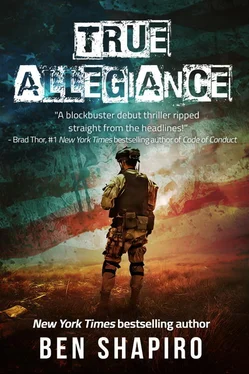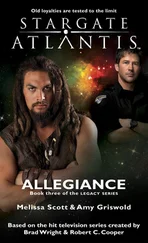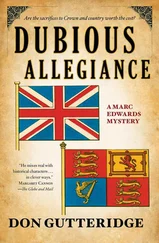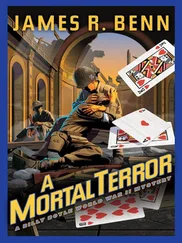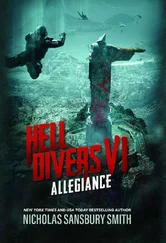That meant she’d have one shot.
She’d have to get within a few dozen yards of the president. But if she did, she knew, it would be enough.
Thanks to the foot traffic at the harbor, traffic had screeched to a standstill across the city. Brett and Ellen occupied one end of the limousine; Tommy Bradley sat across from them. For a few minutes, the White House chief of staff tried to engage with Brett and Ellen. When he realized they weren’t in the mood for small talk, he went quiet. Now they stared at each other awkwardly. Eventually, Bradley took out his cell phone and began making calls, smiling apologetically as he did so.
Brett turned to Ellen. He whispered to her, “I need to go now, sweetheart.” She looked up at him quizzically. He continued, “They won’t let me go anywhere once we get to the airport. I need to get down to the harbor. But you listen to me: whatever you do, you get on the plane with Prescott. I don’t know whether this attack will come at the event or not. But I want you out of this city.” He paused. “I’m so sorry for this, Ellen. I’m so sorry for everything. We could have had a life together.”
She looked at him, dead in the eyes. “Brett Hawthorne, I want you to know this: you are my hero. You always were. I am so proud to be your wife. I wouldn’t trade my life for anyone’s.”
They felt the urge to kiss each other—then they remembered Bradley in the car, and hugged instead. “Take a bullet for you, babe,” he said.
“Take a bullet for you, sweetheart,” she answered.
Before Bradley or the Secret Service agent in the car could react, Brett reached for the lock, popped it open, and stepped out into traffic. By the time they responded, Brett had dodged through the cars, sprinted around the corner, and was gone.
In the car, Bradley glared at Ellen. Then he dialed. “Yes, Mr. President,” he finally said, after the yelling subsided. “I’ll take care of it. And yes, I’ve got Mrs. Hawthorne right here. He’ll be back. I’ll tell security to keep an eye out for him down there.”
Brett reached the outskirts of the crowd just as the event began. Everyone in the huge throng could see the developments—Prescott’s team had made sure to place enormous television screens throughout the area, projecting the events of the day for the overflow crowd. There, up on the dais, stood Imam Anjem Omari, giving an invocation. “‘Whoever kills a soul unless for a soul or for corruption in the land, it’s as if he has slain mankind entirely,’” said Omari. “‘And whoever saves one life, it’s as if he has saved mankind entirely.’ So says our Holy Koran. And we all stand together against those who murder. Make peace, for Allah has proclaimed it so.”
A polite applause rippled through the audience. Brett began to muscle his way forward, his eyes trained on Omari. The imam walked to the edge of the stage, then took his seat. Beside him sat Mahmoud, his nose bandaged. Brett began moving more quickly through the crowd now, weaving in and out. He was within 150 feet of the stage when the president rose to his feet for his introduction.
A video played on the screens flanking the stage: video of soldiers hugging crying family members of the slain, of Coast Guard members directing activity on the Hudson, and then, finally, of President Mark Prescott hugging the protester. Then his theme music began to play, a hard-pounding rock track, and he strode to the stage, waving to the crowd, grinning, giving the thumbs-up.
The crowd roared its approval.
It made Brett queasy. There were no pictures of the fallen in Afghanistan or Iraq. No pictures of the bombs going off under the bridge. President Prescott was a hero, the man who could bring America back together again.
He had no time to focus on all of that, though. Omari and his friend were whispering. Omari nodded, smiled softly, then glanced at his watch.
The president stood at the microphone, let the cheering wash over him. It felt as he always thought it would: better than the election, better than the inauguration. It felt as though all of America held him in its embrace. He raised his hands once more, and the crowd silenced, as if a conductor had told his orchestra to play pianissimo.
“My fellow Americans,” he said, “we stand strong. We stand together. And today, we show the world, we will fight. We will win. And we will build.
“As we speak, I have authorized our air force to strike targets in Syria…”
Syria ? Brett thought. What the hell is in Syria?
Prescott continued, “Our intelligence tells us that this vicious terror attack was masterminded in that war-torn country. We felt the brunt of their rage, and we took their best shot. Now they will take ours.”
Screams, shouting, jubilation. Brett had never heard a crowd respond like this to any politician. “And,” the president of the United States continued, “we will not stop there. We will build, as I promised we would. As of this morning, I have signed an executive order authorizing the Work Freedom Program. We have much rebuilding to do, and every American will play a part in that rebuilding!”
The roar redoubled.
Mahmoud, Brett noticed, had edged toward the stairs on the stage.
“We must build,” said Prescott, “because America always strives for the highest apex. We dream big, and those dreams become reality. Look around you: they destroyed one of our bridges, but we have built thousands upon thousands of monuments to human ingenuity together. Only together!”
Brett glanced behind him—he could see a large man in a baseball cap, his head down, approaching his position from behind. An agent, no doubt. Brett began moving forward again. He was no more than seventy feet from the stage. Mahmoud had left the stage now, and seemed to be moving away from the dais.
Prescott gestured toward the skyline. “And we will build even higher. We won’t just build monuments, though, to materialism. We will rebuild ourselves. Better than we were before. More charitable. More giving. We will ask more from all Americans, and they will respond, because Americans always respond.”
Brett was so focused on Mahmoud that he bumped into a smaller woman in front of him—pretty, close-cropped hair, in her early fifties. “Pardon me,” he mumbled.
Then he saw her hand in her purse.
He’d seen that arm angle before. He knew what a person looked like before they pulled a gun from concealment. He could feel the threat before he even knew he felt it.
He responded instinctually. “Gun!” he shouted, grabbing at her hand. Before she could respond, he’d wrested control of it from her, but she managed to pull the trigger, firing uselessly into the air.
The crowd around them panicked, moving a thousand directions at once, women falling to the ground, men trampled. On the stage, Secret Service agents jumped onto Prescott to protect him, then hustled him off the stage as sirens began to wail and screaming broke out en masse.
Brett realized he was holding the gun a split second before he felt a large man jump on his back, slam him to the ground. The man put his knee to the back of Brett’s head, driving it into the pavement. “Dammit, you idiots,” he gasped, “it’s not me you’re after.”
He glanced up at the face of the Secret Service agent on his back.
A thick burn scar marked his face near his ear.
Then everything went black.
Ellen had watched the proceedings aboard Air Force One. She watched the flustered anchors on the major news networks try to get a bead on the story, giving out unverified information, then retracting it. She knew Brett had no cell phone, so she had no one to call—instead, she waited.
It took nearly an hour for the presidential motorcade to come steaming onto the airfield at LaGuardia. The Secret Service rushed out of their vehicles, ran to the side of the presidential limousine, and created a phalanx around the president. Ellen watched as they brought Mark Prescott, his head covered, up the stairs to the Boeing VC-25. By the time they released him at the top of the stairs, he was cursing a blue streak, shouting. “Dammit, I want some answers! How could you let something like this happen? We had security, didn’t we? And now I look like I’m cutting and running from the site of a terrorist attack?”
Читать дальше
